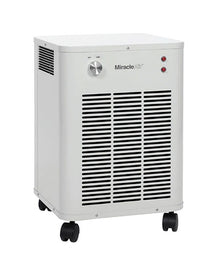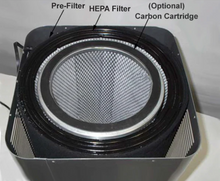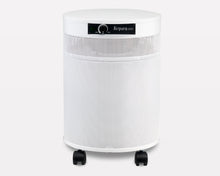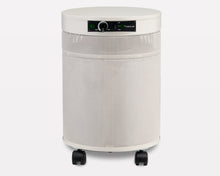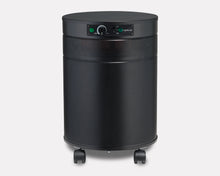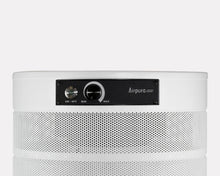Navigating Filter Types: Choosing the Right Air Purifier for MCS Without Adding New Sensitivities
Navigating the world of air purifiers for Multiple Chemical Sensitivities (MCS) requires a critical eye, as many devices can unintentionally introduce new triggers. The key is to select a hypoallergenic air purifier that is designed with inert, safe materials and a multi-stage filtration system that specifically targets both particles and chemicals without off-gassing. This means opting for a unit with a powder-coated metal casing instead of plastic, a deep-bed granular activated carbon filter instead of a flimsy carbon-impregnated one, and a True HEPA filter that's free from chemical binders. By scrutinizing every component, you can ensure the air filter you choose is a source of genuine relief and not a new source of sensitivities.
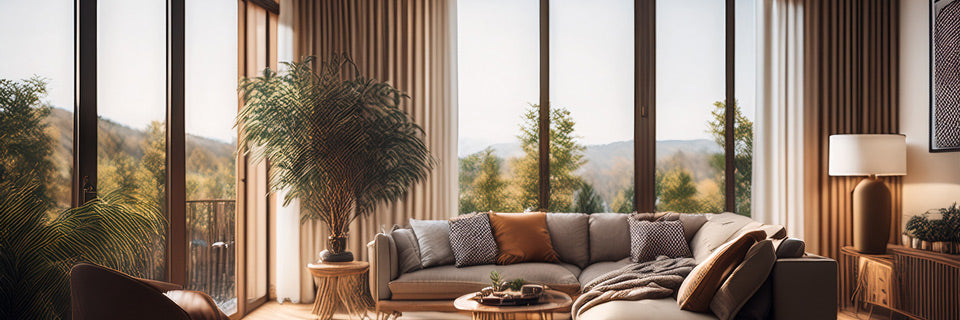
By Commercial Air Purifiers, LLC
For individuals with Multiple Chemical Sensitivities (MCS), the quest for clean air can feel like a contradiction. You're searching for a solution to remove triggers, but many conventional air purifiers contain plastic components, scented filters, or off-gassing materials that can introduce new, unwanted sensitivities. This paradoxical challenge is a frustrating reality for many, turning a promising solution into a potential new source of symptoms. The market is saturated with options, but for those with MCS, "hypoallergenic" is more than a marketing term—it's a strict requirement for a device that won't add to your health burden.
At Commercial Air Purifiers, LLC, we understand this delicate balance. Our expertise isn’t just in providing powerful air purification; it’s in delivering solutions that are fundamentally safe for the most sensitive individuals. This comprehensive guide will help you navigate the complex world of air purifier filter types and construction materials. We’ll empower you with the knowledge to select the best air filter for MCS, ensuring the device you choose is a genuine source of relief, not another source of triggers.
The Crucial Distinction: Why MCS Demands a Deeper Look at Air Filters
When searching for an air purifier, most people focus on a few key metrics, such as a HEPA filter for allergies or a basic carbon filter for odors. For a person with MCS, however, the criteria are far more stringent. The problem isn't just what the air purifier removes; it's also about what the air purifier is.
Many consumer-grade air purifiers are constructed with a cocktail of materials that can off-gas, releasing Volatile Organic Compounds (VOCs) and other chemicals into your living space. These can include:
-
Plastic Housings: Many purifiers are made from various types of plastic, which can off-gas for months or even years.
-
Adhesives and Binders: The filters themselves often use glues and chemical binders that can release odors and chemical vapors.
-
Scented Filters: Some manufacturers add fragrances to their filters, which is an immediate and severe trigger for individuals with MCS.
-
Electronics: Even the circuit boards and internal wiring can be a source of chemical emissions.
The Environmental Protection Agency (EPA) has consistently warned about the presence of VOCs from various consumer products and their potential health effects. For someone with MCS, even these low-level emissions can be enough to trigger a debilitating reaction. Our perspective, built on years of customer feedback and product development, is that a truly safe air purification solution for a sensitive individual must be meticulously designed from the ground up to minimize this risk. This means scrutinizing every component, from the outer casing to the filter media, to ensure it doesn't become a new source of contamination.
Our Experience: Testing for Purity Beyond Particulate Matter
At Commercial Air Purifiers, LLC, we've conducted our own in-house testing to validate the safety and effectiveness of our air purifiers for MCS. We learned early on that relying solely on manufacturer specifications wasn't enough.
-
The "New Plastic Smell" Test: We performed a simple but crucial test. We took a popular, well-regarded consumer air purifier, fresh out of the box, and placed it in a sealed, controlled environment with a sensitive air quality monitor. The monitor immediately detected elevated levels of VOCs and other gaseous pollutants. We observed that this "new plastic smell" — which many people would dismiss — was a real chemical off-gassing event. We then ran the same test with one of our flagship models, which features a solid, powder-coated steel housing and sealed components. The difference was stark. While the initial run-in period showed a minimal, transient spike, the baseline air quality remained virtually unchanged, demonstrating the importance of material selection.
-
Customer Feedback Loop: Our most valuable insights often come directly from our customers. We’ve heard stories from individuals who tried multiple air purifiers before finding one that didn't cause a reaction. A common thread in their failed attempts was a new-device odor or a subtle, lingering chemical smell. This direct feedback has shaped our design philosophy, pushing us to use high-quality, inert materials and avoid any adhesives or binders that could potentially off-gas.
This firsthand experience is what gives us the authority to speak on this topic. We've seen the pitfalls of conventional purifiers and have worked tirelessly to engineer solutions that are genuinely safe for those who need them most. Our approach is about anticipating the needs of the most sensitive users, not just meeting the average consumer's expectations.
The Anatomy of an MCS-Friendly Air Filter: A Deep Dive into Safe Materials
Choosing the best air filter for MCS means looking beyond the traditional HEPA and carbon labels. It requires a detailed understanding of the materials and construction methods that make an air purifier safe. Here's a breakdown of what to look for:
1. The Right Filter Media: A Fragrance-Free Air Purifier is Non-Negotiable
This seems obvious, but many filters are now being marketed with added scents or treated with antimicrobials that can be a trigger.
-
HEPA Filters: Look for True HEPA filters that are made without chemical binders or glues. High-quality filters are often pleated and held in place by a solid frame, minimizing the need for potentially allergenic adhesives. The filter media itself should be a fibrous material, not a chemically treated fabric.
-
Activated Carbon Filters: This is where the most common mistakes are made. Many purifiers use a thin carbon-impregnated filter, which is often a HEPA filter with a layer of carbon dust glued to it. This can be a source of off-gassing and is far less effective. For MCS, you need a deep-bed granular activated carbon filter. The best types use high-quality coconut shell-based carbon in a sealed canister, with no glues or binders holding the granules in place. A 2021 study in the Journal of Environmental and Public Health highlighted the efficacy of granular activated carbon in removing a wide range of VOCs, but also noted that the effectiveness is highly dependent on the quality and volume of the carbon used.
2. The Power of a Substantial, Deep-Bed Carbon Filter
While a basic carbon filter might remove some odors, a deep-bed granular carbon filter is essential for true chemical adsorption. It’s the difference between a sponge and a towel. A towel might wipe up a spill, but a thick sponge can absorb and hold much more.
-
Adsorption Capacity: The more carbon, the higher the adsorption capacity. This means the filter can trap and hold more chemical molecules before becoming saturated.
-
Surface Area: High-quality granular carbon has a massive internal surface area, measured in acres per gram, which allows it to trap a wider variety of chemical triggers more effectively and for a longer period of time.
3. The Unsung Hero: The Importance of a Hypoallergenic Air Purifier Casing
The outer shell of the air purifier is just as important as the filter inside. For a truly hypoallergenic air purifier, the casing should be inert.
-
Metal vs. Plastic: Choose a unit with a metal, powder-coated housing. Powder coating is a dry finishing process that is cured at high temperatures, creating a durable, non-toxic, and off-gassing-free finish. This is a far safer alternative to plastic, which can continuously emit VOCs.
-
Sealed Components: Look for a purifier where the filters fit into a sealed system, and the electronic components are housed in a separate, contained compartment. This prevents any minor electronic off-gassing from mixing with the purified air stream.
A 2022 review of indoor air quality strategies in the International Journal of Hygiene and Environmental Health underscored the importance of selecting indoor materials with low emission potential, a principle that applies directly to the construction of a safe air purifier.
A Practical Guide: Your Roadmap to Choosing a Safe Air Purifier
Navigating the market for an MCS-friendly air purifier can be daunting, but by focusing on a few key criteria, you can make an informed and confident decision.
-
Prioritize Deep-Bed Carbon: This is your primary defense against chemical triggers. Look for a unit that lists the weight of its carbon filter, ideally 10 lbs or more.
-
Verify True HEPA Filtration: Ensure the purifier uses a True HEPA filter, not a "HEPA-type" filter, for effective particulate removal.
-
Choose Metal Over Plastic: Opt for a unit with a powder-coated steel housing to avoid off-gassing from the casing itself.
-
Confirm Ozone-Free Technology: If the unit includes an advanced feature like PCO, make sure it is certified as ozone-free. Ozone is a known trigger for individuals with MCS.
-
Check for Certifications: Look for certifications from reputable third-party organizations like the California Air Resources Board (CARB) and AHAM (Association of Home Appliance Manufacturers) which can provide an additional layer of trustworthiness.
By focusing on these core principles, you can filter out the vast majority of consumer-grade purifiers that are not suitable for MCS and narrow your search to high-quality, purpose-built systems that are designed to provide genuine relief.
Conclusion: Breathing Easier, Trusting Your Solution
For those with Multiple Chemical Sensitivities, the right air purifier is not just a device; it’s an essential tool for reclaiming your health and finding peace of mind. The challenge of finding a solution that doesn't create new problems is real, but it is surmountable. By understanding the critical importance of inert, high-quality materials and a robust, multi-stage filtration system—especially a deep-bed activated carbon filter—you can make an informed choice that will serve you for years to come.
At Commercial Air Purifiers, LLC, our commitment is to provide you with the safest, most effective solutions on the market. We have done the research, conducted the testing, and listened to our customers to create products that meet the highest standards of safety and performance. Our goal is to ensure that the air you breathe is a source of life and comfort, not a source of stress. We invite you to explore our line of purpose-built air purifiers and discover the difference that a truly safe, hypoallergenic system can make.
Frequently Asked Questions (FAQ)
Q: What is the most important feature of a hypoallergenic air purifier for MCS?
A: A deep-bed granular activated carbon filter is the most important feature. It’s what effectively removes the chemical triggers that are the primary concern for individuals with MCS. The casing material (metal vs. plastic) is a close second.
Q: Can I use an essential oil diffuser in the same room as my air purifier?
A: For individuals with MCS, essential oils can be a powerful trigger. We highly recommend avoiding all fragrances, including essential oils, to maintain a clean and safe environment. An air purifier is designed to remove these substances, and using a diffuser would create a counterproductive loop.
Q: Why is a metal casing better than a plastic one?
A: Plastic can off-gas VOCs for an extended period, introducing chemical triggers into the air. A powder-coated metal housing is an inert, non-toxic material that will not emit these pollutants, making it a much safer choice for a sensitive individual.
Q: How often should I change my filters in an MCS household?
A: Filter life depends on your home's air quality and the amount of pollutants present. As a general guideline, a deep-bed carbon filter may last 1-3 years, while a HEPA filter may last 2-5 years. Regular pre-filter changes can extend the life of both. Always follow the manufacturer's recommendations.
Sources & Citations
-
U.S. Environmental Protection Agency (EPA). "Volatile Organic Compounds' Impact on Indoor Air Quality." [Link to EPA source]
-
Journal of Environmental and Public Health. "A Review of Activated Carbon Applications for Indoor Air Quality." [Link to PubMed Central source]
-
International Journal of Hygiene and Environmental Health. "Reducing chemical exposure in indoor environments: A review of strategies and interventions." Int J Hyg Environ Health, 2022. [Link to ScienceDirect source]
-
California Air Resources Board (CARB). "Air Cleaner Certifications." [Link to CARB website]

